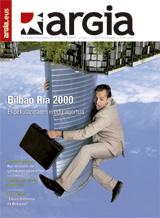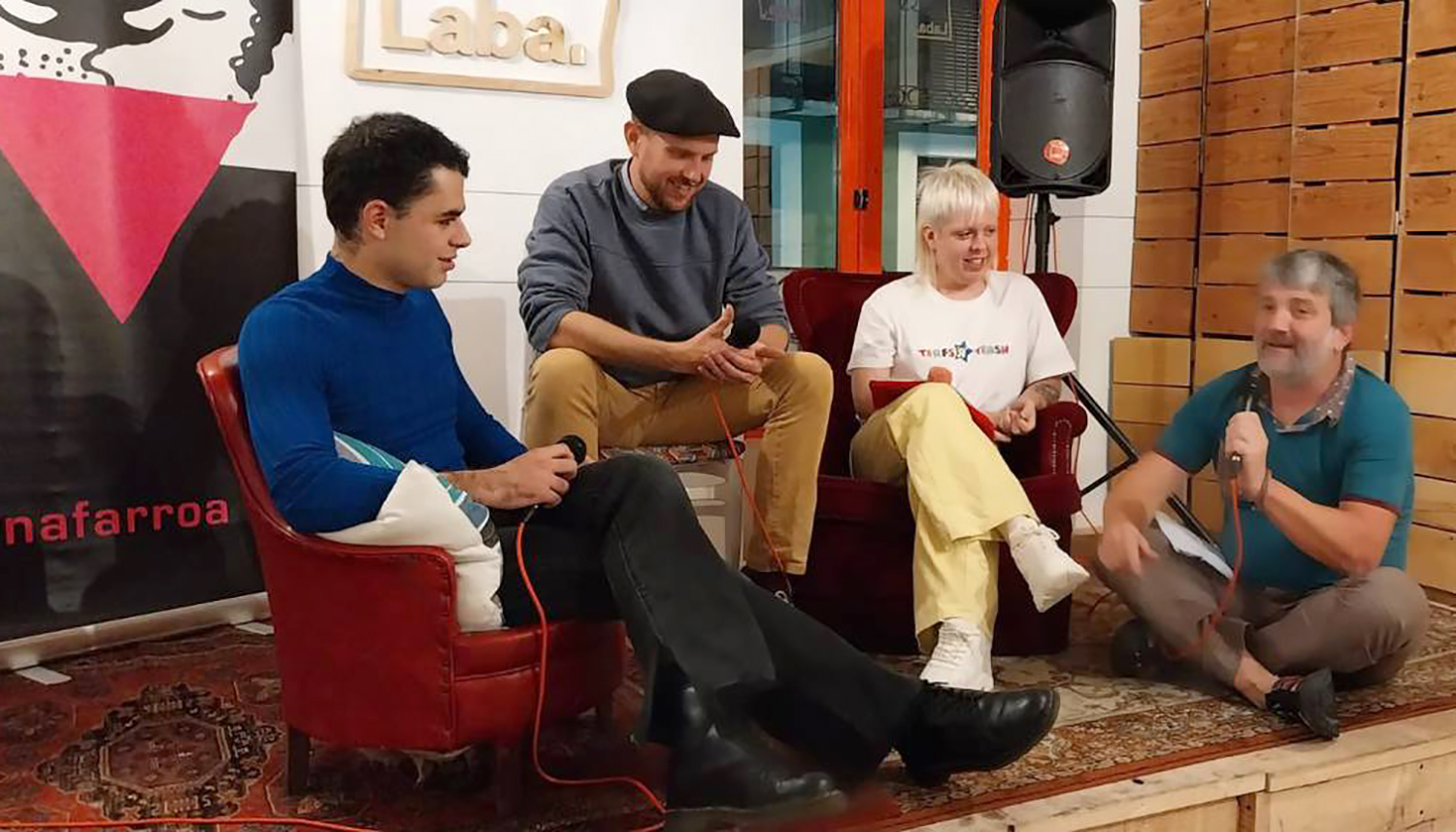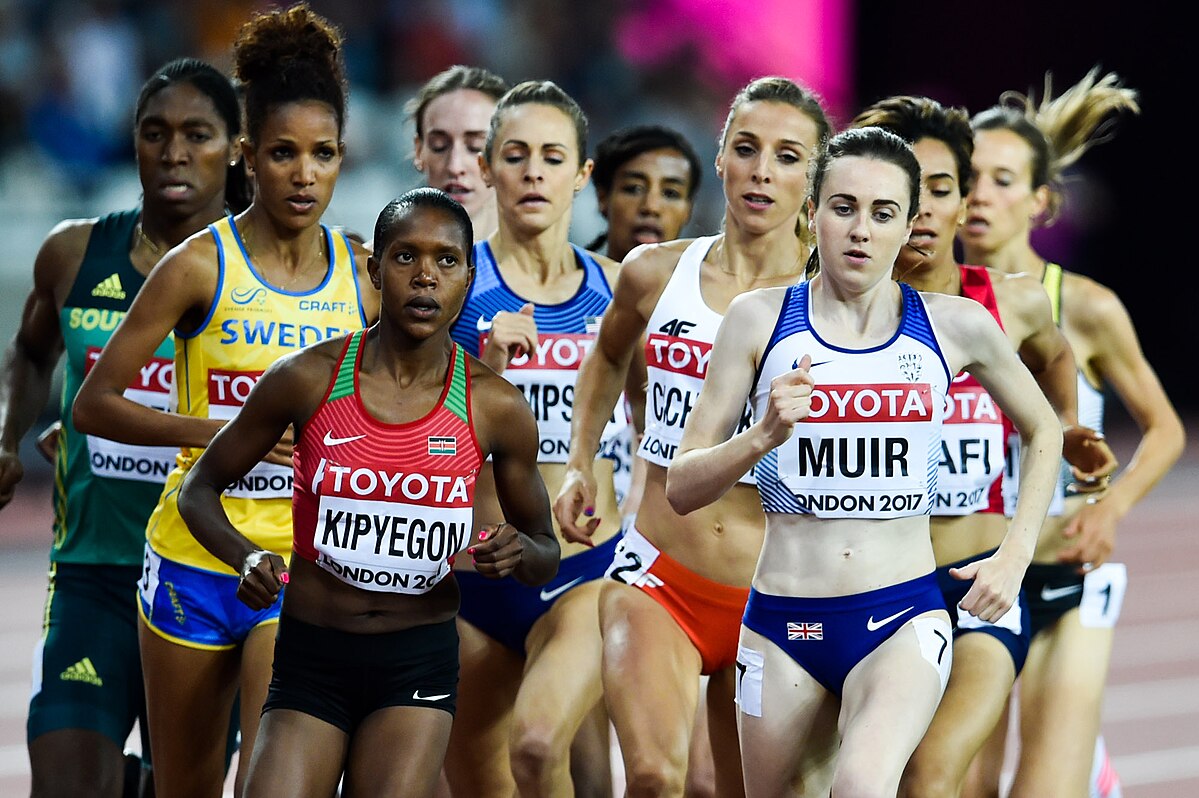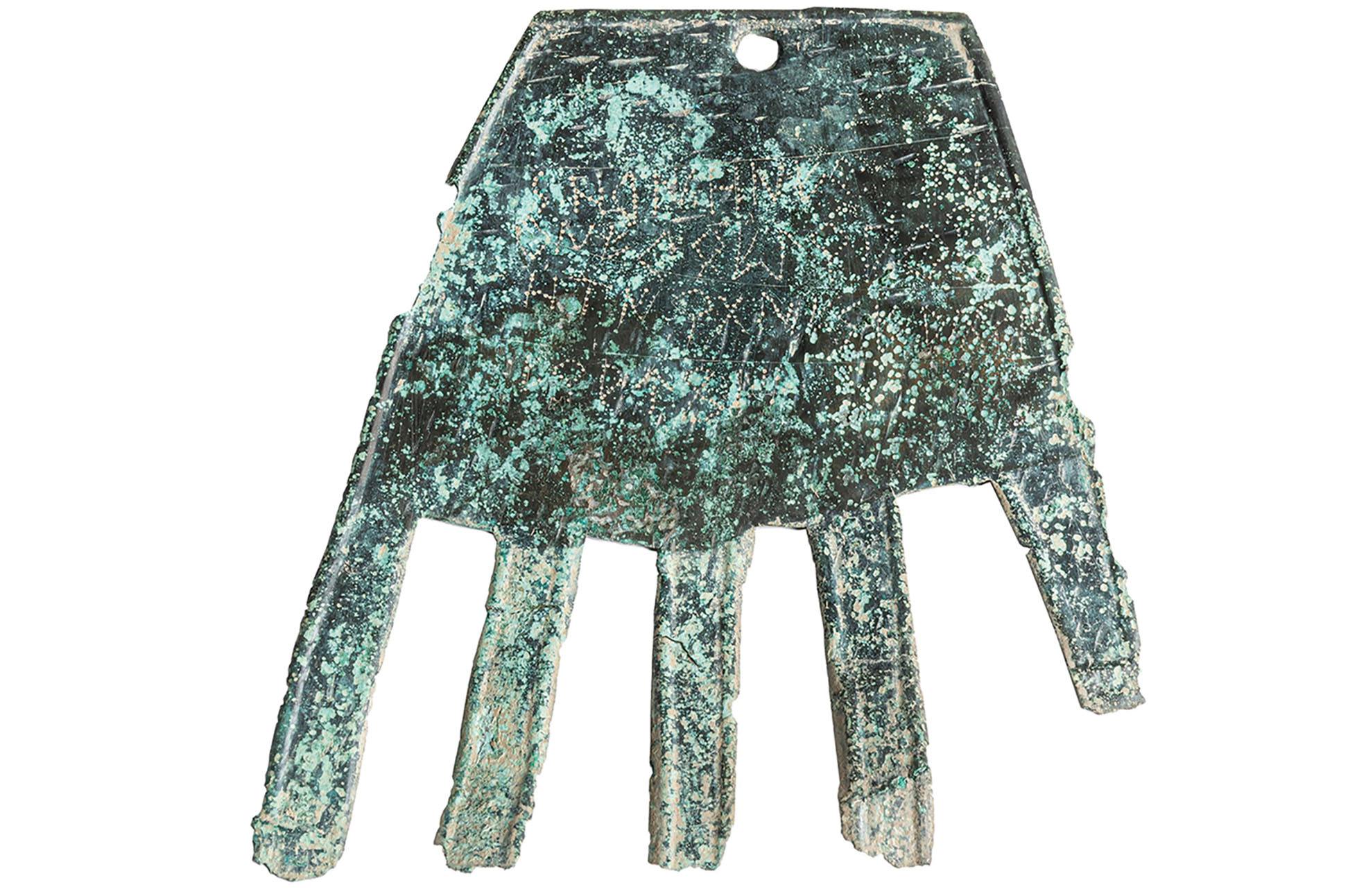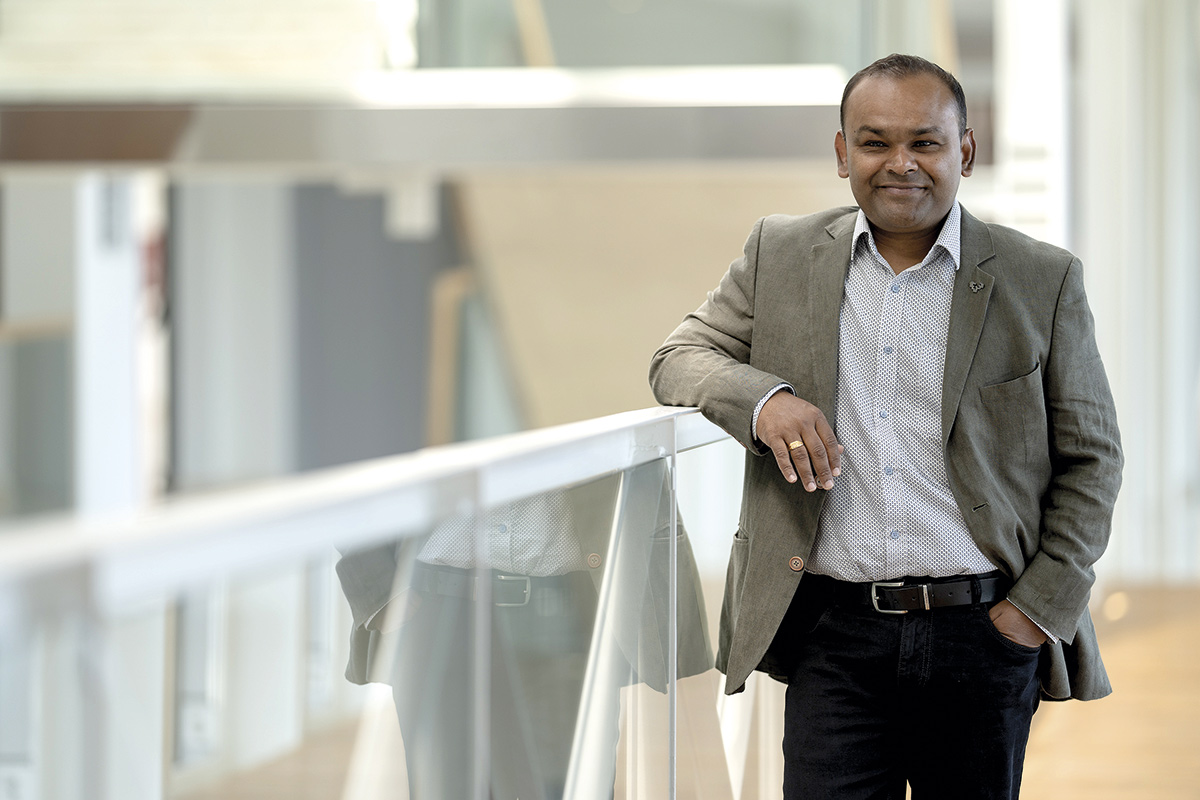The argizaiola is still on, even if countercurrent.
- Bittor Kapanaga (Otxandio 1925-2011) includes his conceptions of language and the world in the book Euskera Erro. This is the first collection of all the works of the Basque writer, edited by the association Gerediaga Elkartea. Juan Martín Elexpuru, head of the editing work, has helped us learn a little more about the Otxandiarra who won the magician's fame.
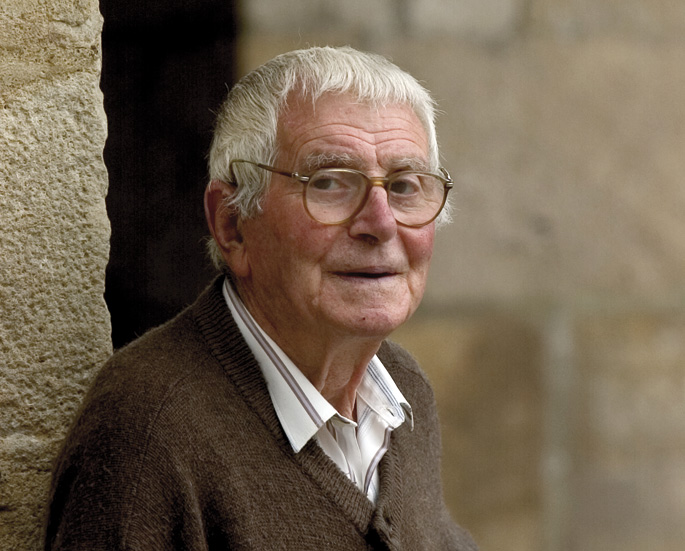
Argizaiola illustrates the cover of the book Euskera erro eta gara: “Argizaiola has something magical. That mysterious way that shakes us up something inside. In addition, it clarifies the darkness, as Bittor used to do on many occasions,” Elexpuru tells us. The past and modernity are represented on the back cover: “I wasn’t just looking back. Kapanaga, in addition to exploring the past, dedicated himself to making proposals about the present and the future, in politics, in cooperativism, in the avatars of the Basque Country batua... Thinker, philosopher, more than anything. His friends also say he was a magician, a shaman or an oracle.”
From his work, the editor speaks like this: “First I would highlight his prose, very elegant. A well-known writer told me he has no envy for the style of Mitxelena or Atxaga. As for editing work, I'm pretty used to editing books from others, but this has been different. To begin with, I had to choose between bringing the sum of Euskera today, leaving it in what is there or doing something intermediate. In the end, we decided to leave it where I was, and I've almost limited myself to rectifying. Every word that Victor wrote was well thought out and it was a deceit to his spirit that his work brought the sum of today. Even though he was an amateur to join, he would have thrown us some lightning if we had put the original Euskera and the bagasse instead of them.”
The Basque is the root and we are, and not the Basque is the root and we are. “In the sense of the bertsolaris, although the rhyme of the second is softer...”. He laughed at this idea. “It has a better rhyme, of course. But if he had something, that the Basque language was our language and not the Basque language; –that the second component is the language, the Gipuzkoan, the Biscayan, the Italian, the Japanese... The Basque Journal of Euskaltzaindia, 70% of the Basques speak Basque, Euskera when speaking Spanish and Euskera batua? I think there was no shortage of reasons.”
On the occasion of Refranes and Judgments, Mitxelena maintained: “Bittor was heterodox, he had a critical spirit. The arguments of authority were useless. She had a lot of relationship with Euskaltzaindia, because she had friends and not so much friends. Because he lacked a title and was humble, some did not have much respect for him. I did not agree with the interpretation of some phrases from Refranes and Sentecias. He published an article in Basque. The most debated: ‘Erioak in Ereza, daughter of Butroe in Plentzia’. Kapanaga translated ‘Springs in Ereza, Butrón’s daughter in Plencia’. It considered absurd what the original contained, which Mitxelena had taken for granted: ‘The Tatar killed Buron’s daughter in Plencia’. They say that Errenteria's work got very angry because Kapanaga's work was published in the academy's magazine. In any case, today most say that Bittor got it right.”
On the subject of Euskera batua, there has always been talk of unification and dialect. Capanaga experienced the evolution of the Biscayan with pain. “He lived the process of the Basque Country batua from start to finish. He was in Baiona in 1964, at the decisive event organized by Txillardegi, and in Arantzazu in 1968, at the Euskaltzaindia Assembly. He supported Batua, but he said that it had to be done slowly, taking the best of every dialect. The Biscayan dialect is the most archaic dialect, the one that has best remained in its ancient forms, and lived with anger when it came to building the unitary exclusion of this dialect. We have mentioned ‘Euskera’ and ‘bage’, and listening to it, for example, proposed ‘Zuek zare’. ‘You are’ seemed to him an aberration. ‘So why not ‘weep’?’ he said.
He was critical of “scholars.” He frequently repeated small remarks. The Basque Country is witness and witness: “What are the Basques of our ‘mediocre age’ doing to us? Sitting on a golden mea, let’s see if that red land serves to plant lilies.” However, Kapanaga was very optimistic, “Language, like the sea, will always tend to recover its spaces”, as stated in the phrase: “He was aware that the language has been lost a lot in history, but he hoped that the Basque country would recover its fields, such as water. I am not so optimistic, but I have just read that at Zalduondo there were 1.8% Euskaldunes in 1981 and now they are 37%. Water goes up.”
The elements of water, fire, wind, earth, tree are of great importance in the linguistic and anthropological study of Kapanaga. I knew very well the nature and the language that accompanied it. In Euskera, I found the keys to interpreting our environment and the past. Perhaps the vision of the Basques is the best work to know their thought. It deals with dozens of issues, sometimes without going too far. “Was it Bittor Kapanaga fire?” Elexpuru asked: “What to say? There was water and also fire, but slow, of great coals, but of weak flames, of little vanity. I used to tell Gontzal Mendibil: ‘I will defend the house of the Father of Aresti has been fine for a while, but I will have to relive my Mother’s fire for new times.’ He was
shy, but he was not ashamed to reveal his truth to anyone. Curiosity and common sense. Soft and ductile, he didn't give in to anything important to him. Austero. The one who lived alone, the single on purpose, fearing to lose freedom. Good psychologist. An excellent conversation partner. I knew how to look at things from unexpected perspectives. Son of last time: “At eleven years old he saw with his own eyes the first bombing of the war. After war, adolescence taking care of and reading cows. Twenty years old to Eibar. It was his university. San Martin, Laspiur, Basauri... He got dressed there. At thirty-three he returned to Otxandio and dedicated himself to popular construction, created cooperatives, rented the farmhouse and laid cows. But his beloved was the Basque. He spent half a life analyzing it and taking it.” After his death, 26 of those who were friends at the time of death were videotaped. Everything is on the Internet. You can search by writing “The Wizard of Otxandio”: “Admiration is the word that summarizes everyone’s action. More than one said she was obstinate, obstinate. If he had one thing clear, he wouldn’t retire easily.”
With those of the last generation, however, he managed very well. IGOR Elortza or Unai Iturriaga, for example, were friends and colleagues of yours. I spent hours reading newspapers at the Herriko Taberna, and the young people came to chat often. Happy young people and he too.
The editor encourages the Euskaltzales to read the book, especially the philologists: “There is a tendency among the ‘trades’ to despise Kapanaga’s ideas, often without knowing them. He proposes hundreds of etymologies and raises interesting hypotheses about the past of Euskera. It won't always get it right, but others won't. We tend to walk in the darkness on these kinds of issues, but for that darkness Kapanaga’s work is not bad.”
We are seeing more and more spelling errors in the writings of social networks, not only of young people, but also of the media. Some have become so common that they hardly hurt their eyes.
In this way, we can read in Spanish many things like: "You lose a dog," "It'll be that or k... [+]
Euskaltzaindia's motto is "ekin eta jarrai" ("ekin eta jarrai"), the outlawing of Euskaltzaindia. I don't know why the Academy wasn't outlawed, all three words appeared on its logo. The allegations have been made with less - and (those of one age remember the cassette of The Mondragon... [+]
Euskararen biziberritzea Ipar Euskal Herrian jardunaldia antolatzen du ostiral honetan Baionan Euskaltzaindiak. Euskararen alde egiten dena eta ez dena eztabaidatzeko mementoa izango da. Eragileak eta politikariak bilduko dira egun osoan.
In a one-hour commute to the workplace, I am accompanied by the car radio. On yesterday's journey, I had the opportunity to enjoy a short story program, as the last port of the road, full of curves, began in Karrantza. Short legends, yes, of few words, but stories of great... [+]









